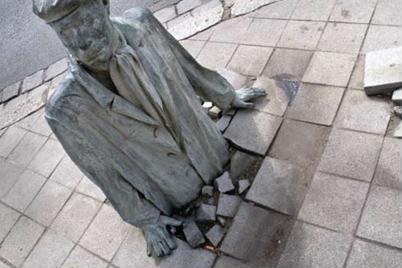The conference, fifth from the series Place and Location, concentrates on the cinema of the former Eastern Bloc in the era between the end of the World War II and the collapse of the Soviet Union. In film studies, a great part of Eastern European cinematic heritage has been somehow lost. Although the Communist ideology as one of the major grand narratives of the 20th century has inevitably influenced the film industry and therefore the creation of concrete cinematic pieces in Eastern European countries, the collapse of the Communist system has caused a certain ‘vacuum of reception’ in current academic research on film – because who really cares about the lost (film) history of the spatiotemporal order sculpted by the political ideology of Communism at a time when the ideology has become a loser on the world map?
By ‘lost’ cinema we mean everything that has been often excluded from the writings on the cinema of Eastern Bloc and Soviet Union: e.g., mainstream films (as opposed to the works of so-called great masters), the productions of small republican studios, especially those in the Baltic States. Whilst reading the surveys on film history, it seems to us that often the most valued part of the post-World War II Soviet and Eastern European cinema is the oeuvre of particular key directors and a body of works that was denied circulation, the so-called shelved films. At the same time the background against which to evaluate these ‘masterpieces’ is fragmentary and scarce. Among other things, the seminar aims to problematise the existing habitual scale of evaluations.
Where else did the filmmakers in the Eastern Block look for guidance and inspiration, receiving by and large the technical base as well as ideological instructions from Moscow? Were Paris, Rome and/or Hollywood just a distant mirage behind the Iron Curtain? Or did the cinema in Eastern Bloc inevitably take the same paths of exploration? Here stems an important (sub)topic – the question of dissidence, namely the possibility of dissidence in the films at a time when the cinematic endeavours were normally under strict control of state agencies. Closely connected to this is the aspect of reception, the politicisation of certain artistic and not always political choices. Shelving films was only one, and perhaps even one of the softest manifestations of this. Another side of this problem is the (politically defined) reception of Eastern European and Soviet cinema in the West.
PROGRAM
Friday, October 5
9.30 Registration
9.45 Conference welcome
10.00 Dina Iordanova (University of St. Andrews, UK)
Paternalist omnipresence: state ownership of cinema and its ironies
10.45 Katarzyna Marciniak (Ohio University, USA)
How does cinema become lost? The spectral power of socialism
11.30–11.45 Coffee break
11.45 Katie Trumpener (Yale University, USA)
“When do we get our cinema?” Stalinist populism and East German media critique
12.30 Bjørn Sørenssen (Norges teknisk-naturvitskaplege universitet, Norway)
Real men of marble: the disappearing image of the working class in East European film
13.15–14.15 Lunch
14.15 Ewa Mazierska (University of Central Lancashire, UK)
Politics of space in Polish communist cinema
15.00 Elisabetta Girelli (University of St. Andrews, UK)
Negotiating space: private, public, and the subversion of place in The L-Shaped Room (Bryan Forbes, 1962) and Closely Observed Trains (Jiri Menzel, 1966)
15.30–15.45 Coffee break
15.45 Eva Näripea (Estonian Academy of Arts / Estonian Literary Museum)
Spatial discourse of the Soviet Estonian feature film, 1947–1959
16.15 Natalia Zlydneva (Institute for Slavic Studies, Russian Academy of Sciences / Institute for World Culture, Moscow State University)
The avant-garde trace in educational cinema of the 1950sSaturday, October 6
9.30 Anikó Imre (University of Southern California, USA)
Creatures of nostalgia: children’s entertainment during socialism
10.15 Petra Hanáková (Charles University in Prague, Czech Republic)
Stylistic and generic hybridity in Czech cinema (popular cinema from the 1960s to the 1980s)
11.00–11.15 coffee break
11.15 Irina Novikova (University of Latvia)
Baltic cinemas – flashbacks in/out of the house
12.00 Peeter Torop (University of Tartu, Estonia)
Poetics of resistance: The Last Relic and/as Estonian film after 1968
12.30 Tiina Lokk (Tallinn Black Nights Film Festival, Estonia)
Lost generation
13.00 Mari Laaniste (Estonian Academy of Arts, Institute of Art History)
Pushing the limits: Priit Pärn’s animated cartoons from 1977 to 1987 and Soviet cinema censorship
13.30–14.30 Lunch
14.30–15.50 Screening: Insanity (dir. Kaljo Kiisk, Tallinnfilm (Estonia), 1968)
15.50–16.00 Coffee break
16.00–17.00 Panel discussion Organisers:
Art Museum of Estonia
Institute of Art History, Estonian Academy of Arts
The Research Group of Cultural and Literary Theory, Estonian Literary Museum
Coordinators of the Conference:
Eva Näripea (The Research Group of Cultural and Literary Theory)
Maria-Kristiina Soomre (KUMU)
Andreas Trossek (Estonian Academy of Arts, Institute of Art History)
VIA TRANSVERSA was supported by:
Cultural Endowment of Estonia
Ministry of Culture of the Republic of Estonia
Estonian Film Foundation
Embassy of the United States in Estonia
Embassy of the Czech Republic in Estonia
Press coverage (in Estonian):
Sirje Helme, Eva Näripea, Konverentside buum. – Sirp 14.09.2007
Kumus tulekul konverentsid kunstist ja filmist. – Eesti Ekspress 20.09.2007
Sirje Helme, Vaielgem selgeks sõjajärgne kunstilugu. – Postimees 24.09.2007
Kumus räägitakse endise idabloki filmikunstist. – Eesti Päevaleht Online 04.10.2007
Andreas Trossek, Filmikaadrid, enamasti mälust. – Sirp 12.10.2007
Anu Allas, Mõtteline Ida-Euroopa [näitusesarjast „Arhiivid tõlkes” ja Kumu sügiskonverentsidest „Erinevad modernismid, erinevad avangardid” ning „Via Transversa”] – Agent. Eesti Kunstimuuseumi ajaleht, nr. 12, oktoober 2007, lk. 5
